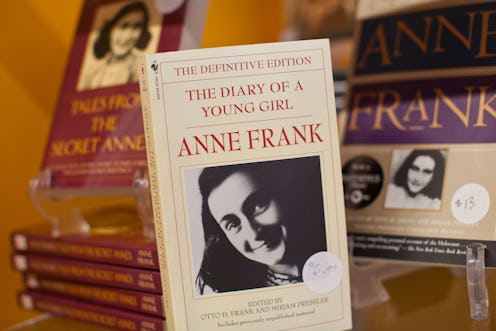Books
Can You Be Too Young To Write A Memoir?
Leslie Jamison's The Empathy Exams isn't exactly entirely memoir; there's some of her life mixed in with investigative journalism and meditations on human nature. But Jamison, who is 31, is advocating for voices like her own and many, many (many, many!) others who feel that they are valid voices in memoir, despite their young age. It's long been a debate in the literature community whether there should be an age requirement to write a memoir — not officially, of course, but to be taken seriously in publishing and in the community. Jamison says absolutely not, and saying otherwise is detrimental.
Jamison's push for the validation of what she calls "young memoir" began after reading 2014's Washington Post review of her friend Will Boast's memoir Epilogue, written by Jonathan Yardley. Boast was 34 when his book was released, relating his life experiencing the deaths of his entire family. Yardley's review was negative, but it was his comments toward the end that hit a nerve for Jamison:
We really do not need yet another memoir by a person too young to have undergone any genuinely interesting and instructive experiences — or, having had such experiences, too young to know what to make of them — and too self-involved to have any genuine empathy for those whose paths he crosses, but here we have just such a book.
If you can pick your jaw up off the floor after reading that Yardley called a young man losing every member of his family not "interesting" enough, you'll agree with Jamison at how he takes one memoir to make a generalization of every young person's memoir. It's a dismissal, an invalidation. Your stories are not and never can possibly be interesting or instructive.
Never mind that it's not clear what exactly is "young" in memoir, there are plenty of examples of people 40 and under that have not only written memoirs, but have written acclaimed ones.
Augusten Burroughs wrote Running With Scissors when he was 37. Elie Wiesel published Night about his experiences in Nazi concentration camps when he was 32. Mary Karr published her first memoir The Liars' Club when she was 40. Piper Kerman wrote Orange is the New Black, which HBO thought was pretty interesting, when she was 40. And Ishmael Beah wrote A Long Way Gone about his experiences as a child soldier in Sierra Leone when he was 27. But Jamison comes in with the clincher:
I, for one, am glad that Anne Frank took the time to record her experiences for the rest of us.
Jamison put that one down like a boss.
She's quick to say, however, that making this argument isn't just about listing exceptional young memoirs. It's about validating all voices who have something important to say:
And my skin flinches, in particular, at the second part of Yardley's argument: the notion that even those who have had experiences worth narrating will be "too young to know what to make of them," which feels like a willfully reductive evasion of a more complicated truth.
She's not saying, of course, that all young memoirs are good (and hey, neither are all older generation memoirs), Jamison instead is defending the idea that some might be and are. And that removing an entire section of memoirs purely based on age is a mistake.
Of course someone will look back with his first broken heart at the age of 40, or 60, or 80. But that doesn't mean these perspectives are better, or that our self-understanding travels toward some telos of perfect consummation with every passing year. The narratives we tell about our own lives are constantly in flux; our perspectives at each age are differently valuable. What age gains in remove it loses in immediacy: The younger version of a story gets told at closer proximity, with more fine-grain texture and less aerial perspective. I believe in all these versions of a story.
Not only do young people have life stories to share, Jamison argues, but they are able to tell an entirely different type of story, one told in immediacy and emotion. And to disregard that is a shame not only to young writers, but to the reading public.
